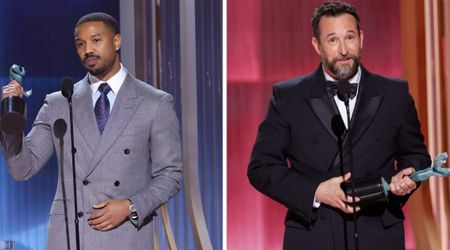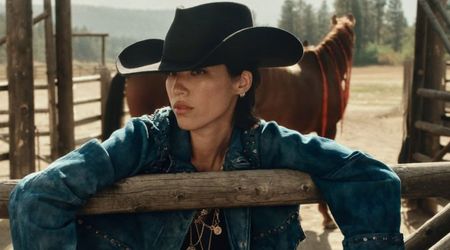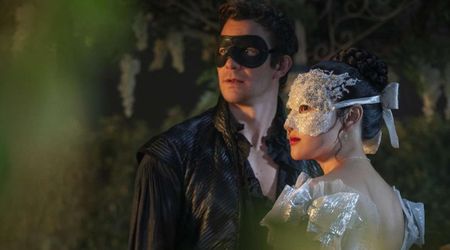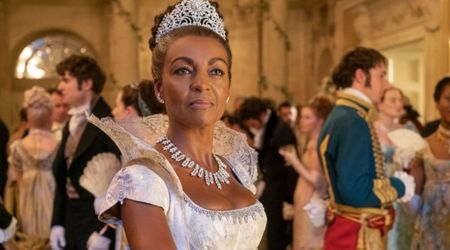'Dietland' review: This delicious satire digs into myths of beauty and fashion

Unfortunate as it is, Hollywood's record with depicting "fat" people on the big/silver screen has been gravely off the mark. Especially when it comes to female characterization — the women are either the perpetually stereotyped side-kick, the butt of all jokes, a comic relief, or the subject of an impending makeover. Basically the fat to fabulous story.
The irony is that when off-kilter feminine comedies or comic drama is the topic in consideration — names such as Melissa McCarthy, Rebel Wilson, or even Amy Schumer are bound to surface and not for the right reasons. Despite the vast reserve of talent, the actresses have been reduced to the state of character actors — fat, funny, and frivolous.
Fortunately or unfortunately, Marti Noxon's adaptation of Sarai Walker’s novel Dietland rips apart the "fat" and notions associated with the status quo on screen. If Schumer shouldered the pillars for directors Marc Silverstein and Abby Kohn in 'I Feel Pretty', Dietland has actress Joy Nash.
In what might as well be considered the truest representation of the over-size category on TV, Nash plays a struggling journalist called Plum Kettle. Her struggles, however, merely begin with her career. As a woman weighing over 135 kgs, lodged safely within the four walls of her rather dingy apartment, Plum rarely steps out and, even when she does, her radius is limited.
If not making trips to the office of the glossy teen magazine, Daisy Chain, where she serves as a ghostwriter to Julianna Margulies (Kitty Montgomery), Plum is mostly seen at her house, a nearby cafeteria, or at the anti-weight version of the AA meetings.
Her restricted social interaction, though, has no bearing on her level of awareness. Right from the very beginning, in fact, it is established that Plum has a sound knowledge of the prevalent societal issues, whether it is eating disorders, mental health battles, or teenage crisis.
More than awareness, what Nash's character has in abundance is compassion. In her capacity, as the ghostwriter for the Letters to the Editor, Plum lends out sound pieces of advice and even makes Kitty (her boss) appear intelligent in the fine prints. Not that at any point is Margulies' Editor portrayed as a muttonhead.
If anything, in the cutthroat world, Kitty (an image almost mirroring the infamous Miranda Priestly) believes in survival of the fittest. She survives in the competitive world of magazine journalism and ensures that the 50-odd thousand readers (mostly girls) stay loyal to the edition. A feat that possibly couldn't be achieved if it was left to Kitty's cunning and outrageously-thin waistline alone.
Here's where Plum comes in. She is an able writer suffering the fat complex. As a reviewer, I might be more conscious about the generous use of the term, but our lead character has no qualms acknowledging that she's overweight or that stapling the stomach is a thought she is considering seriously. A process which needs to be followed up by a skin reduction surgery.
Instead of painting a mostly happy personality characterized by infrequent spells of melancholy, Dietland takes a bold step and colors its lead character in mostly grey shades. Shuttling between her apartment and the magazine office, Plum shows visible signs of agony, anger, and dissent, feelings that are sharpened in her interactions with Kitty, who obviously has zero consideration for her prized ghostwriter.
The intellectual and power dynamics against the backdrop of weight-loss obsession, fat-shaming, and double-standards of the beauty industry make up just half of the story. The rest derives inspiration from a Me Too-infused climate, on the lines of a murder mystery, vigilante activities and an apparently secret group whose agenda is to expose all the myths related to fashion.
The bubble is burst, and beautifully so, in the first two episodes itself. While the tragic story of a dietguru, mother of Verena Baptist (played by Robin Weigert), scars the idea of conventional beauty, a caricature of Plum deepens the irony.
While Plum's animated self — which shows up whenever Dietland's main lady engages in introspection — is oddly grotesque, her struggles are hardly humorous. It's way too real, at one point even forcing the otherwise safe-playing Plum to take brazen steps.
Whether Noxon's darkly satiric drama is headed into the future with a body-positive message or a delicious mix of sinister issues and crime mysteries, it's hard to tell. But with its well-rounded characters and timely and relevant narrative — it has definitely taken a big bite of our attention.










